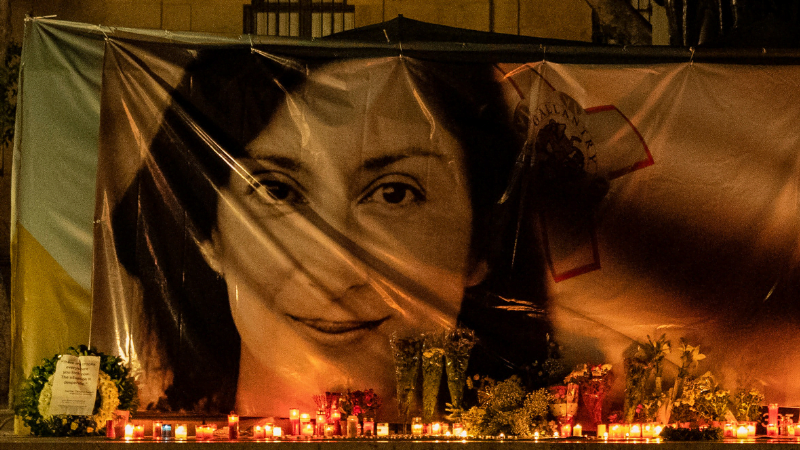Daphne Caruana Galizia’s “death should set a precedent for accountability, and not, as it does currently, for impunity,” according to a report by the UK Foreign Affairs Committee.
The Committee said the Foreign and Commonwealth Office (FCO) must “publicly press for an independent judicial inquiry in Malta into the murder of journalist Daphne Caruana Galizia”.
The demands were made in a report following the Global Media Freedom Conference in the UK in July, and concluded that individuals or governments found violating media freedom should be punished and shamed through sanctions and international coordination.
“The FCO should give more consideration to supporting an international mechanism for investigating and punishing the abuse of journalists when governments cannot or will not do so,” according to the conclusions of the report highlighted by Caoilfhionn Gallagher, barrister at Doughty Street Chambers in London.
Importantly, the report concludes “the FCO must do more in public to shame perpetrators;” including when those perpetrators are governments.”
To that end, @CommonsForeign calls on FCO to “publicly press for an independent judicial inquiry in #Malta” on #DaphneCaruanaGalizia. Some background to this @DoughtyStIntl @BhattMurphy https://t.co/yCPSEeX43V The FCO must now speak out on this case. We urge them to do so. 4/8 pic.twitter.com/czCdtZTakW
— Caoilfhionn Gallagher KC (@caoilfhionnanna) September 9, 2019
Gallagher, who is also representing the Caruana Galizia family in litigation against the Maltese government, echoed the call urging pressure on the case.
She also pointed out that the Parliamentary Assembly of the Council of Europe (PACE) had given Malta three months to start an independent judicial inquiry. Yet, with less than 20 days to go, there is no commitment from the government.
The hard-hitting report tackles the evolving nature of the dangers faced by media workers including virtual, economic and physical threats.
“There is a concern that the FCO’s preferred method is a firm word behind closed doors; especially when other UK interests are involved. The UK is seen, quite literally in some cases, as trading away its values,” the report states, listing three cases including Caruana Galizia’s assassination.
Alongside Malta, the Committee shamed Saudi Arabia for the murder of Jamal Khashoggi, Iran for digital and online threats against journalists beyond its borders, and Turkey which the report states should be designated as a “human rights priority country”.
Setting out 10 key recommendations in the report, the Committee asks that the Foreign Office adapt a more focussed and supportive approach.
Recommendations include developing an internal mechanism to “punish” governments that fail to punish threats against journalists, asking them to shame and sanction those who oppress the media, and the issuing of fast track visas for journalists and their families under threat.
Last month, Caruana Galizia’s son, Matthew, publicly criticised the UK Government for refusing to pressure Malta into opening a public inquiry into whether his mother’s assassination could have been prevented.
“Human rights bodies, like the Council of Europe, and its agencies that focus on money laundering, and the rule of law, are really doing their best,” he told The Financial Times. “But what is disappointing is the response of individual governments within Europe, especially the UK government”.












